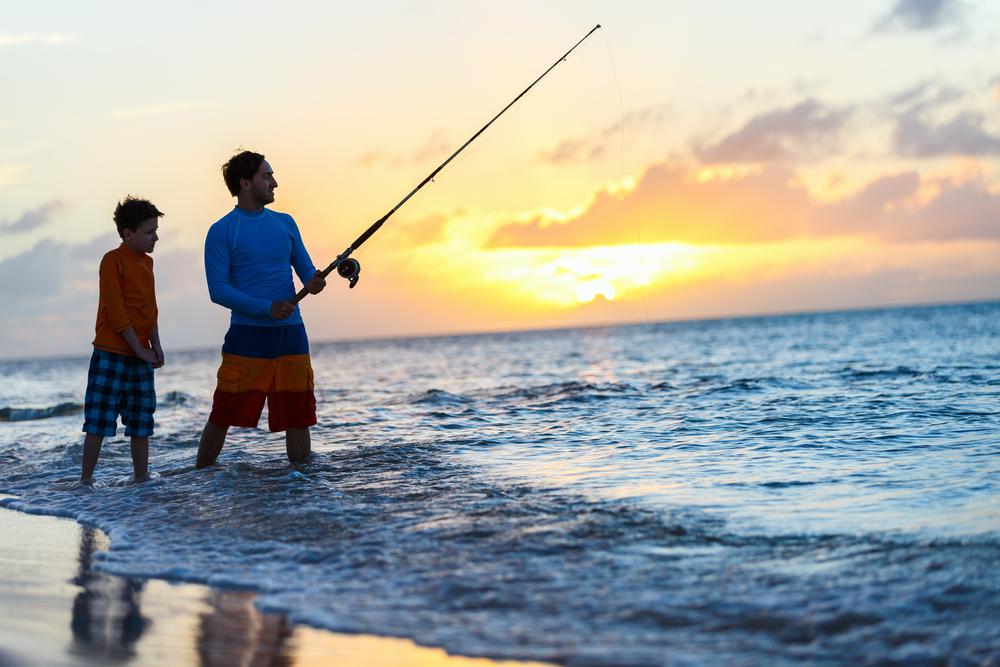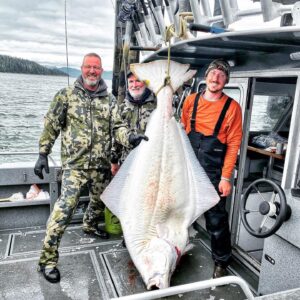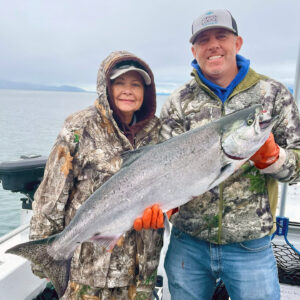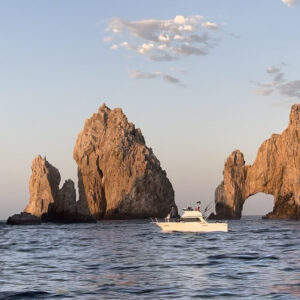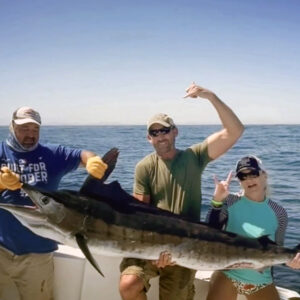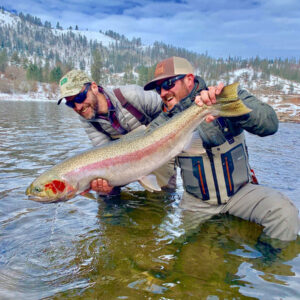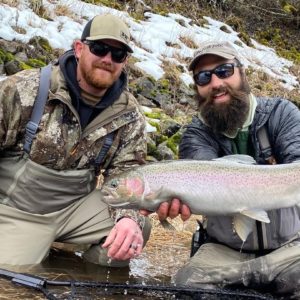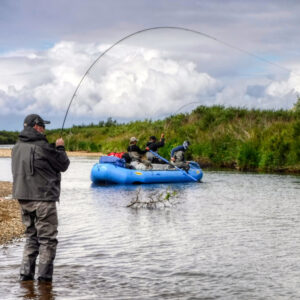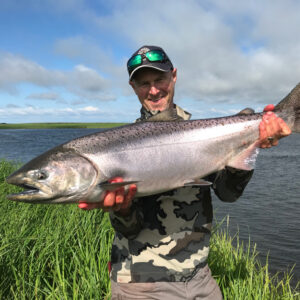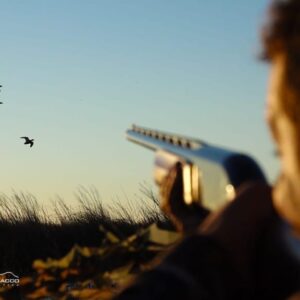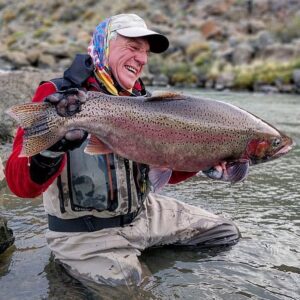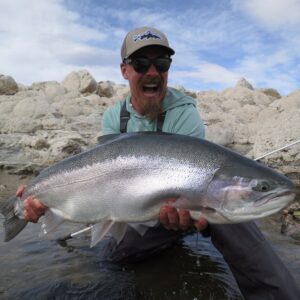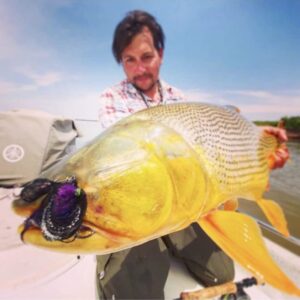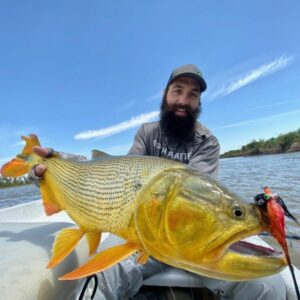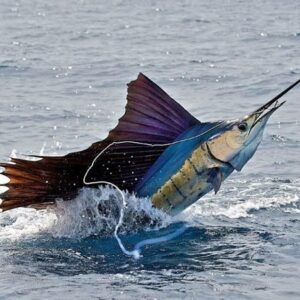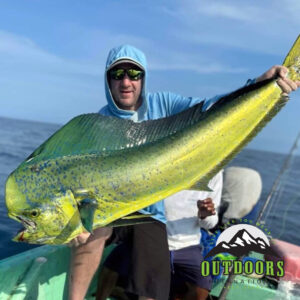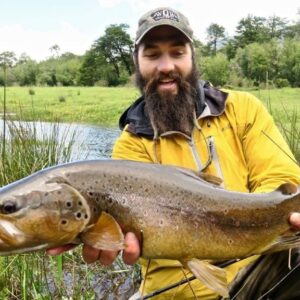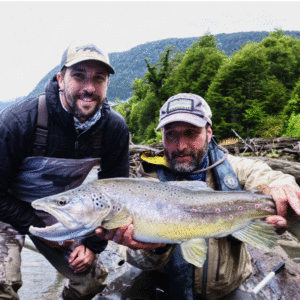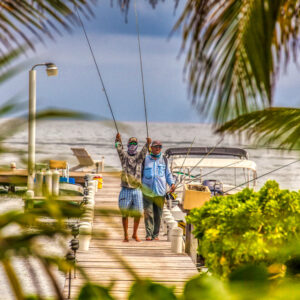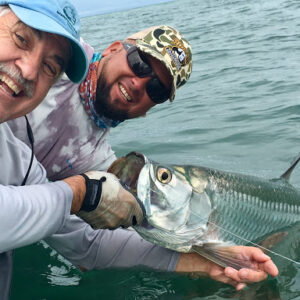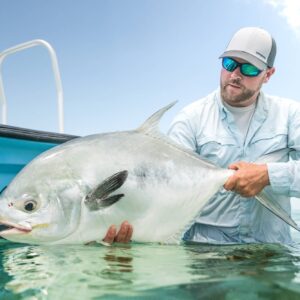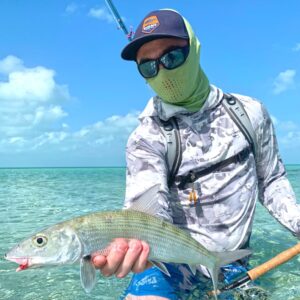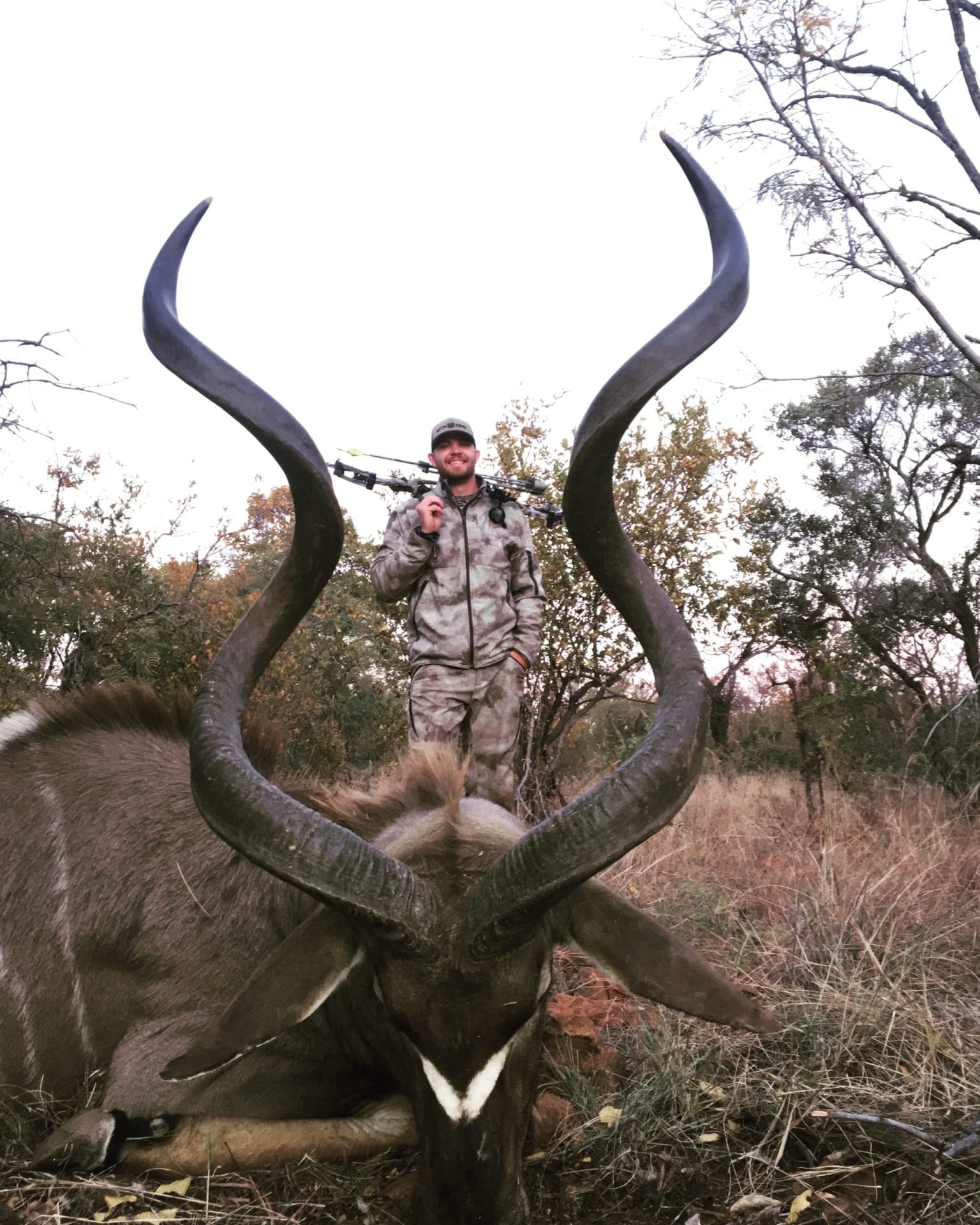Although not everyone is lucky enough to live near a beach, most Americans can take a trip to the ocean, at least occasionally. These trips to the ocean provide a priceless opportunity to experience saltwater fishing, which has its own set of challenges and rewards.
The diversity of sea life is usually much greater than in rivers and lakes, so anglers can try their hand at catching delicacies like squid and tuna. The sheer amount of space on the coast means that anglers can usually spread out, especially if they have a boat.
Saltwater fishing has its learning curve, but it should be easy enough for anyone with the willingness to try.
Here are some good saltwater fishing tips for beginners to get you ready for a successful day on the shore or the water.
1. Safety First
Whether you’re fishing from a pier or a boat, saltwater fishing can be an incredibly safe and exhilarating activity. However, it’s important to take reasonable precautions to avoid injuries.
Always ensure there are no swimmers or jet skis around before casting a line. While this is most likely to be an issue on beaches and piers, it may be a hazard when fishing from boats as well. Pay attention to posted signs, which may ban fishing in some areas.
Never run on the deck of a boat, and make sure all parties wear lifejackets if needed or required by law. Lifejackets are highly encouraged, though most localities won’t require them for adults over 18. Minors should always wear lifejackets, and anyone who isn’t a confident swimmer must wear one when on deck.
2. Get a License
Saltwater fishing regulations vary by state, but most locations require adult fishermen to obtain a license.
Some licenses cover all categories of fishing, while others only cover specific species or types. Children don’t usually require permits, but make sure to double-check in advance. Boats may also require special licenses, especially if they are brought in from out of state.
Getting a license can be a helpful process instead of just another step to worry about. Local fishing and wildlife authorities are often happy to provide information about what fish are in season. They can also answer any questions you have about rules, regulations and safe fishing spots.
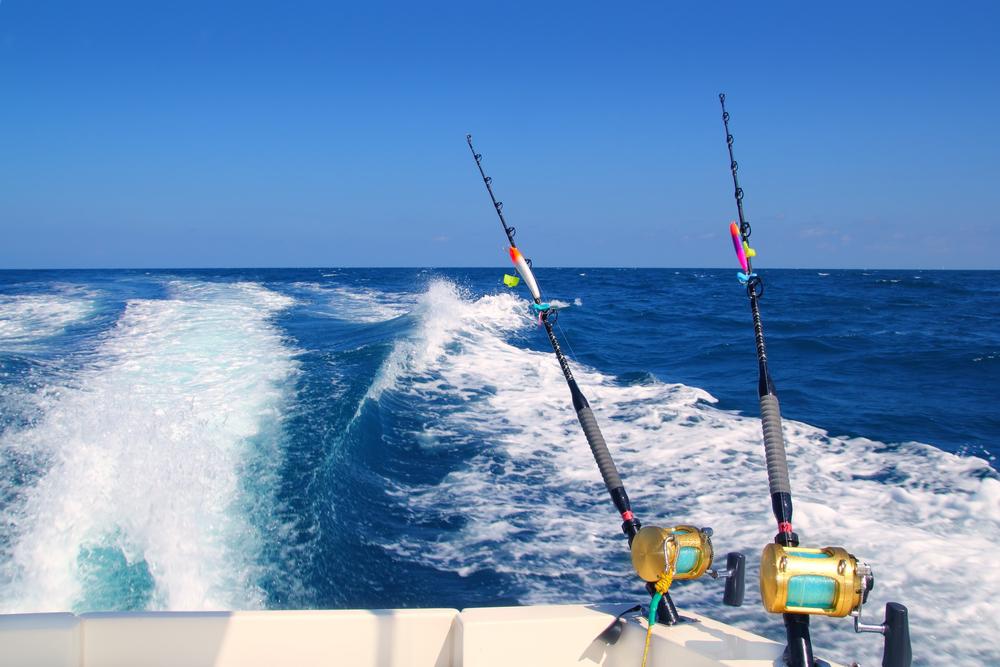
3. Practice Different Techniques
The type of fishing you are doing determines the technique you’ll use.
Rod fishing involves different combinations of methods for casting and pulling the bait along. Certain fish feed far below the surface of the water, so a weight might be necessary for keeping the bait at the appropriate level.
Not all fishing techniques require a rod. Spearfishing is a popular option in shallow waters, and trap or pot fishing can be incredibly rewarding for anglers with a lot of patience. Adventurous anglers can consider seining, which involves pulling a net between two boats.
4. Find the Right Fishing Gear
Just like with freshwater fishing, the best rod for saltwater fishing partly depends on what fish you’re after and what technique you use.
Some saltwater rods are made for casting long distances, while others are designed for casting more accurately for short distances. Read up on recommended rods for the fish you want to catch, and don’t hesitate to rent or buy a different rod if needed.
Performance fishing apparel also matters, especially when boat fishing. Sea spray can quickly soak boaters and equipment, so good waterproof boots and jackets can provide the extra protection you need. The wind and sea spray can quickly make boating chilly, so pack an extra layer even if you’re boating in the middle of the day.
Look for fishing apparel with UV protection, as it can help reduce the need for sunscreen. A hat and sunglasses are also wise for any location. Even cloudy fishing trips may result in significant amounts of UV exposure.
5. Try Sunrise or Sunset Fishing
Though getting up and out the door in the morning can be a hassle, it can have great rewards.
Depending on climate, sunrise and sunset are usually the best time for fishing, as fish are more active during those times. Flashlights or headlamps may be necessary for safety, but this extra precaution is well worth it.
Different fish species tend to be active at different times, so if there’s a particular fish you want, do some research on it first. Take care not to run afoul of local regulations, which may ban fishing before dawn or after dark in some areas
6. Hire a Good Fishing Guide
Even experienced freshwater anglers might need a guide to navigate saltwater fishing. This is especially true for families traveling to the ocean from out-of-state, since the entire area is unfamiliar.
Chartered fishing boats are an excellent way to hand off the hard work while you get some practice in. With tips from an experienced guides, new anglers can get used to the different casting techniques much more quickly.
This is especially helpful for families or larger groups. Parents can dedicate more attention to their children, while adult groups can spend more time bonding and less time worrying about logistics. Here at Outdoors International we can help you do some research on recommended fishing guides and show you references and reviews from satisfied clients.
7. Watch the Tide and Moon Phase
The movement of the tides has a significant effect on the movement of fish.
Generally, incoming tide is the best time to fish, since it brings in small prey for larger fish. Avoid fishing at peak high and low tide, since the water does not move as much during these times.
The full moon is the best time for night fishing, as the light of the moon brings fish closer to the surface. The tides are also slightly stronger during full moons. If possible, plan your next fishing trip as close to the full moon as possible, and avoid the new moon.
Ready to Go Saltwater Fishing?
The Pacific and Atlantic Oceans each offer unique experiences, and both should be on any angler’s bucket list.
With so many places to go saltwater fishing, from the Florida Keys, Belize or Bahamas to the East Coast on the Atlantic side, or Alaska, California, British Columbia or even Mexico on the Pacific side of the nation. The differences up and down each coast can be stark. It’s hard to know what awesome destination to choose – sometimes that’s the hardest part, but we can help.
To make the most of your adventure, always ask us for advice, and once you get there, talk to locals or the nearest bait shop. Even an unsuccessful day can end with good memories, as long as everyone stays safe and has fun.
Ask For Pricing or More InformationHere are some more fishing trips that you might like:
Live Like You Mean It
Contact Us
We've helped thousands of OI clients plan their adventures
Our team of professional consultants are ready to help you research, book and plan an amazing trip with one of our amazing outfitter partners around the world.
I didn't think an experience like this was possible.
This trip, was, for me at least not just a trip, for me it was a real adventure, a real experience. I love the wilderness and this trip afforded me the opportunity to connect with the Alaskan wilderness in ways very few people do. It was an experience I will never forgot in a place I can’t wait to get back to.
Oliver Fischer
The outfitter handled everything perfectly.
We were thankful that Outdoors International hooked us up with a great outfitter because they were able to find us an acceptable alternate on short notice. Overall the two year process to get this float in was seamless and worry free. Just like it should be.
Thank you,
Stan Masneri
What an amazing experience!
The lodge was out of this world! Our rooms, the delicious food, the incredible wildlife and the scenery were amazing. Our photo safari guide was truly exceptional and had us on animals almost constantly. We saw over 30 different species and had some incredible up close experiences. Africa is amazing!
Scott Navares
Copyright 2005-2026 © Outdoors International™ · All Rights Reserved.


